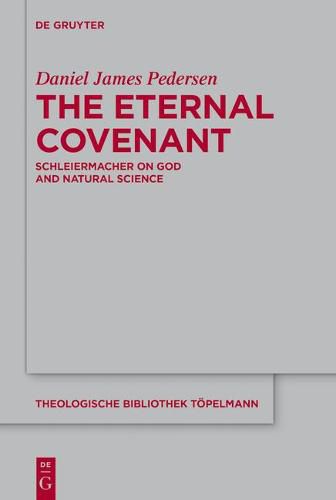Readings Newsletter
Become a Readings Member to make your shopping experience even easier.
Sign in or sign up for free!
You’re not far away from qualifying for FREE standard shipping within Australia
You’ve qualified for FREE standard shipping within Australia
The cart is loading…






This title is printed to order. This book may have been self-published. If so, we cannot guarantee the quality of the content. In the main most books will have gone through the editing process however some may not. We therefore suggest that you be aware of this before ordering this book. If in doubt check either the author or publisher’s details as we are unable to accept any returns unless they are faulty. Please contact us if you have any questions.
Schleiermacher’s readers have long been familiar with his proposal for an ‘eternal covenant’ between theology and natural science. Yet there is disagreement both about what this ‘covenant’ amounts to, why Schleiermacher proposed it, and how he meant it to be persuasive. In The Eternal Covenant, Pedersen argues, contrary to received wisdom, that the ‘eternal covenant’ is not first a methodological or political proposal but is, rather, the end result of a complex case from the doctrine of God, the notion of a world, and an account of divine action. With his compound case against miracles, Schleiermacher secures the in-principle explicability of everything in the world through natural causes. However, his case is not only negative. Far from a mere concession, the eternal covenant is an argument for what Schleiermacher calls, ‘the essential identity of ethics and natural philosophy.’ Indeed, because the nature system is both intended for love and wisely ordered, the world is a supremely beautiful divine artwork and is, therefore, the absolute self-revelation of God. Schleiermacher’s case is a challenging alternative to reigning accounts of God, nature, divine action, and the relationship between religion and science.
$9.00 standard shipping within Australia
FREE standard shipping within Australia for orders over $100.00
Express & International shipping calculated at checkout
This title is printed to order. This book may have been self-published. If so, we cannot guarantee the quality of the content. In the main most books will have gone through the editing process however some may not. We therefore suggest that you be aware of this before ordering this book. If in doubt check either the author or publisher’s details as we are unable to accept any returns unless they are faulty. Please contact us if you have any questions.
Schleiermacher’s readers have long been familiar with his proposal for an ‘eternal covenant’ between theology and natural science. Yet there is disagreement both about what this ‘covenant’ amounts to, why Schleiermacher proposed it, and how he meant it to be persuasive. In The Eternal Covenant, Pedersen argues, contrary to received wisdom, that the ‘eternal covenant’ is not first a methodological or political proposal but is, rather, the end result of a complex case from the doctrine of God, the notion of a world, and an account of divine action. With his compound case against miracles, Schleiermacher secures the in-principle explicability of everything in the world through natural causes. However, his case is not only negative. Far from a mere concession, the eternal covenant is an argument for what Schleiermacher calls, ‘the essential identity of ethics and natural philosophy.’ Indeed, because the nature system is both intended for love and wisely ordered, the world is a supremely beautiful divine artwork and is, therefore, the absolute self-revelation of God. Schleiermacher’s case is a challenging alternative to reigning accounts of God, nature, divine action, and the relationship between religion and science.